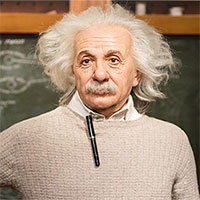Why does everything in the Solar System rotate? And why is almost every rotation in the same direction?
This cannot be random. Look down at Earth from above and you’ll see it rotate counter-clockwise. The same goes for the Sun, Mars and other planets.
4.54 billion years ago, our Solar System formed inside a hydrogen cloud , this cloud is different from the Orion or Eagle Nebula with its wonderful pipes of creation.
It then needs some impact, such as shock waves from a nearby supernova, and this creates an area of cold gas that pushes inward through their gravity. When it has shrunk, the cloud begins to rotate.

Artist’s drawing depicting a protoplanetary disk around a newly formed star. (Credit: ESO/L. Calçada).
It is due to conservation of rotational momentum.
Think of an individual molecule in a hydrogen cloud. Each particle carries its own momentum and drifts through space. When these molecules combine with other molecules by gravity, they need to balance the momentum of each particle. The possibility of a perfect balance of zero is possible, but it’s really hard.
Meaning, some of them will slide past each other. Just as hand-held figure skaters pull together to spin faster, the pre-solar nebula’s contraction with the momentum of its balancing particles becomes faster.
This is where conservation of rotational momentum comes into play
As the Solar System rotates faster, it flattens out into a disk with a bulge in the middle. We see the same structure everywhere in the universe: Shapes of galaxies, around rotating black holes…
The Sun formed from the bulge at the center of this disk, and the planets formed outside. They inherit rotation from the overall motion of the Solar System itself.
Over the course of a few hundred million years, all the matter in the Solar System gathered together into planets, asteroids, moons and comets… Then intense radiation and stellar winds from the young star The sun blows away the rest.
Without any other unbalanced force acting on them, the inertia of the Sun and planets has kept them spinning for billions of years.
And they will continue to rotate until they collide with other objects, billions or even trillions of years in the future.

The Earth rotates to conserve its angular momentum.
The Earth rotates because it was born in the accretion disk of a hydrogen cloud that contracts from mutual gravity and is necessary to conserve its angular momentum. It continues to rotate by inertia.
The reason they all spin in the same direction is because they were born together in the same nebula billions of years ago.
The Earth can stop rotating, change the direction of rotation, rotation angle… only when there is an unbalanced force acting on it.

